The Microbiome Ecology and Biogeochemistry team aims to generate innovative knowledge on the exciting universe of the complex and interconnected microbial diversity and functions across multiple natural environments.
In our research projects, we cover the study of fundamental biogeochemical cycles (e.g Nitrogen) and microbial communities in extreme polar regions (Arctic and Antarctica), deep sea environments, temperate coastal waters, estuarine ecosystems and open ocean environments, with a broader perspective on how microbiomes respond to global changes.
Our studies are multidimensional involving oceanographic campaigns, as well as in situ experiments, microcosms and bioreactors experimentation using biogeochemical measurements, microbiome sample processing and genomics / metagenomics / metatranscriptomics work flow analysis. We participate in national, and international marine microbiome monitoring programs by generating long-term genomic data sets, with an active involvement in international microbiome consortia and metagenomics standardized initiatives (e.g. Ocean Sampling Day, EMO-BON, ATLANTIDA, Ny-Alesund pelagic monitoring).
The fundamental knowledge acquired by our research team on complex microbial functions across natural environments allow us to contribute to interdisciplinary projects related with the development and validation of novel technologies for Ocean observation and pollution mitigation, as well as in projects related to microbial applied disciplines, specifically in bioprospecting, bioremediation and aquaculture microbiomes managing.
Our team works in a strong interdisciplinarity environment (Microbial Ecology, Biogeochemistry, Genomics, Oceanography, Bioinformatics, Big Data Analysis, Modeling, Technology Development) together with national and transnational partners to explore the exciting scientific challenges on the fundamental roles of the environmental microbiome.
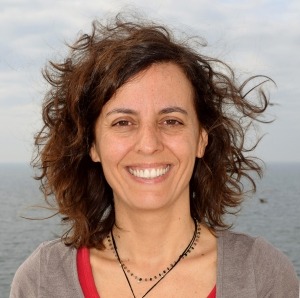

PhD in Marine Sciences, researcher of CIIMAR, invited assistant professor at University of Porto and member of the coordination committee of Portuguese Polar Program. Her major research is on understanding how microbial derived nitrogen machineries interact and to identify the mechanisms regulating their operation. She focus her research on the impact of pollutants in marine N-biogeochemical pathways and in identifying the environmental constraints and controls on microbial Nitrogen pathways distribution including in extreme environments (Arctic/Antarctica). In the context of her research the methodologies she use are mainly biogeochemical measurements, microbiome sample processing and genomic and metagenomic work flow analysis.
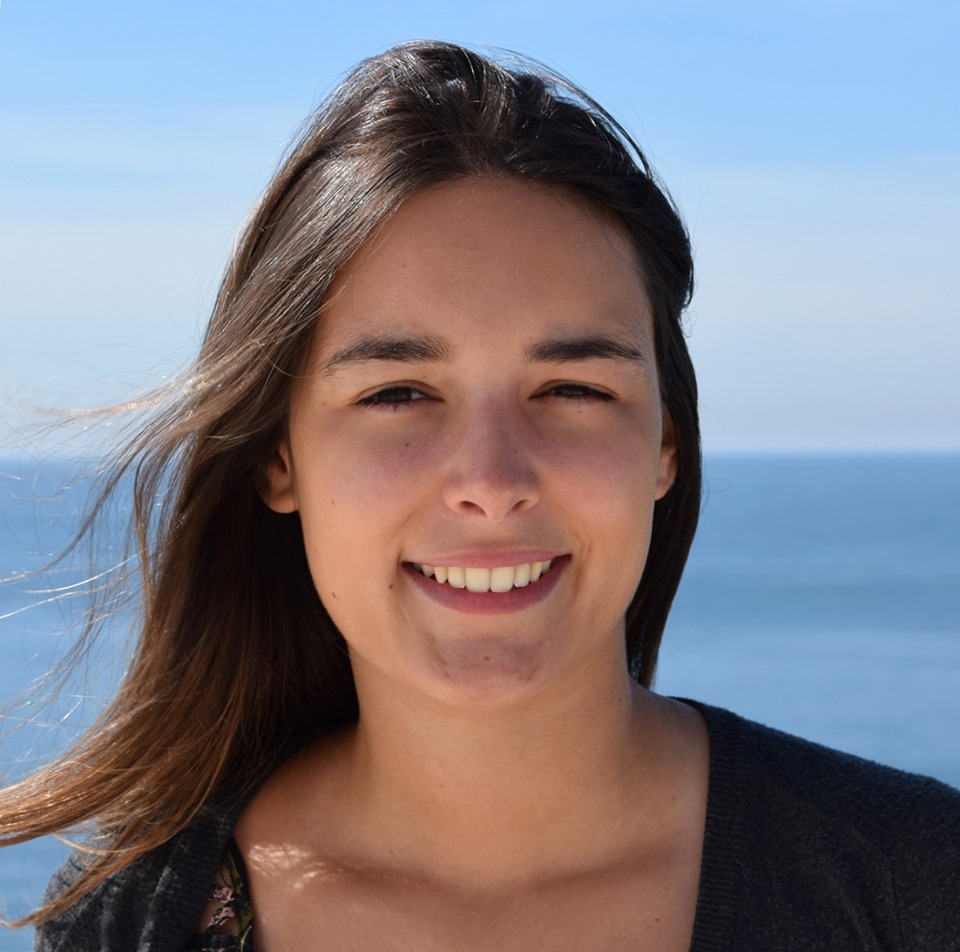

Adriana Rego graduated in Biology at the University of Porto in 2015 and received his MSc in Molecular Biology (2017) from the same university. Since 2019 she is a FCT PhD student enrolled in the Biomedical Sciences doctoral programme. In her project she combines bioinformatics and microbial ecology to study the distribution and diversity of bacterial biosynthetic genes across multiple ecosystems.
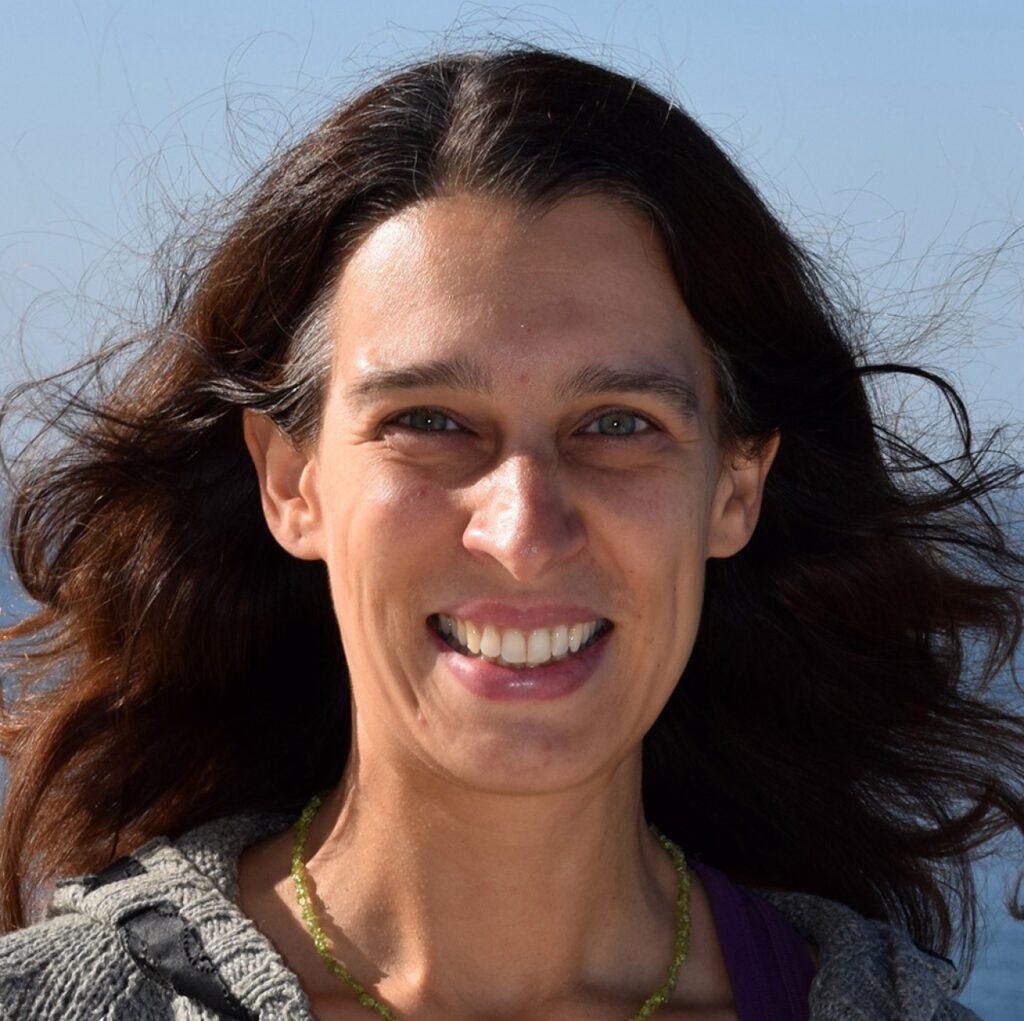

Mafalda Baptista is a postdoctoral researcher working on the microbial ecology of aquatic systems and extreme environments. She got her PhD in Environmental Sciences and Technology from the University of Porto in 2008. Since then she has established a number of collaborations with research institutions, namely the Center for Environmental Implications of Nanotechnologies, University of California at Santa Barbara, in the USA, the Department of Ecology, Environment and Plant Sciences, University of Stockholm, in Sweden, and the International Centre for Terrestrial Antarctic Research, University of Waikato, New Zealand


Ana Gomes holds a BSc degree in Biochemistry from University of Porto (Portugal) and a MSc degree in Applied Biology with a focus on Marine Biology, Ecotoxicology and Pollution from University of Aveiro (Portugal). Her Master’s thesis was developed in the Arctic Research Center (University of Aarhus, Denmark) and was focused on bacterial communities involved in oil biodegradation under Arctic conditions. Currently, Ana is working on the CONNECT2OCEANS project investigating microbial dynamics in response to global environmental changes.


Ana Ribeiro has a degree in Biology from the University of Porto, since 2022. She is currently in the second year of the Master’s degree in Ecology and Environment at the Faculty of Sciences of the University of Porto. As part of the master’s degree, she will carry out her thesis at ciimar in the Microbiome Ecology and Biogeochemistry group.
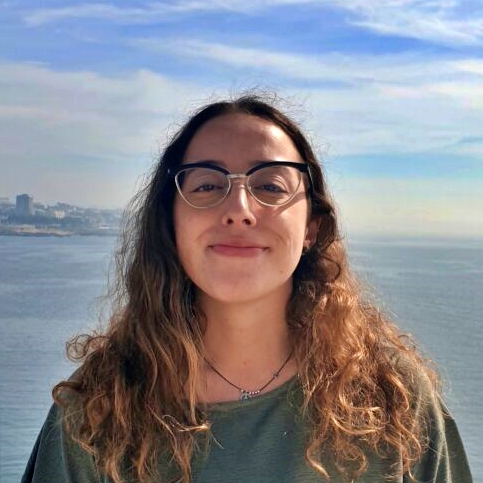

Eva Lopes has a Master’s degree in Marine Sciences-Marine Resources, with a specialization in Marine Biology and Ecology (University of Porto). Currently, she is doing her PhD in the doctoral program “Marine Science, Technology and Management” at the Faculty of Sciences of the University of Porto. Her PhD thesis focuses on how the Atlantification phenomenon affects microbial communities in the Arctic Ocean, in terms of their diversity and interactions with each other, with a special focus on the nitrogen cycle. For her PhD, she collects samples at the Ny-Ålesund science station and works in partnership with the Norwegian Polar Institute.
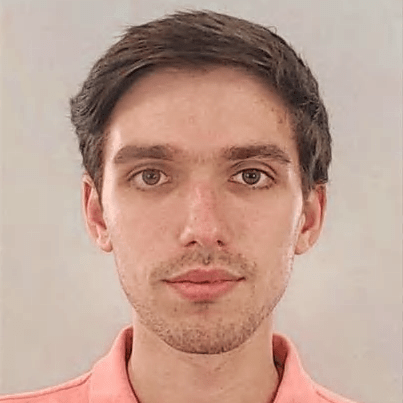

Master of Science in Microbiology, PhD candidate at CIIMAR. His research is focused on the analysis of amplicon sequencing data and metagenomics from environmental microbial communities. His PhD project focuses on the rare biosphere response to climate change in the Arctic ocean.
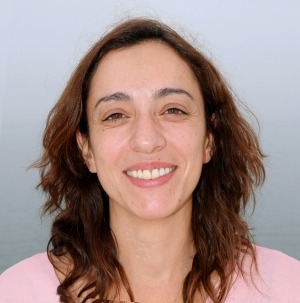

Joana Faria da Costa graduated in Aquatic Sciences in 2006 and obtained her PhD degree in Biomedical Sciences in 2012 by the Institute of Biomedical Sciences of Abel Salazar, University of Porto. She is currently a post-doc researcher at the laboratory of Ecotoxicology in CIIMAR. Her current main research interest focuses on aquatic toxicology, related with the assessment of aquatic environmental quality, and food and water security and sustainability
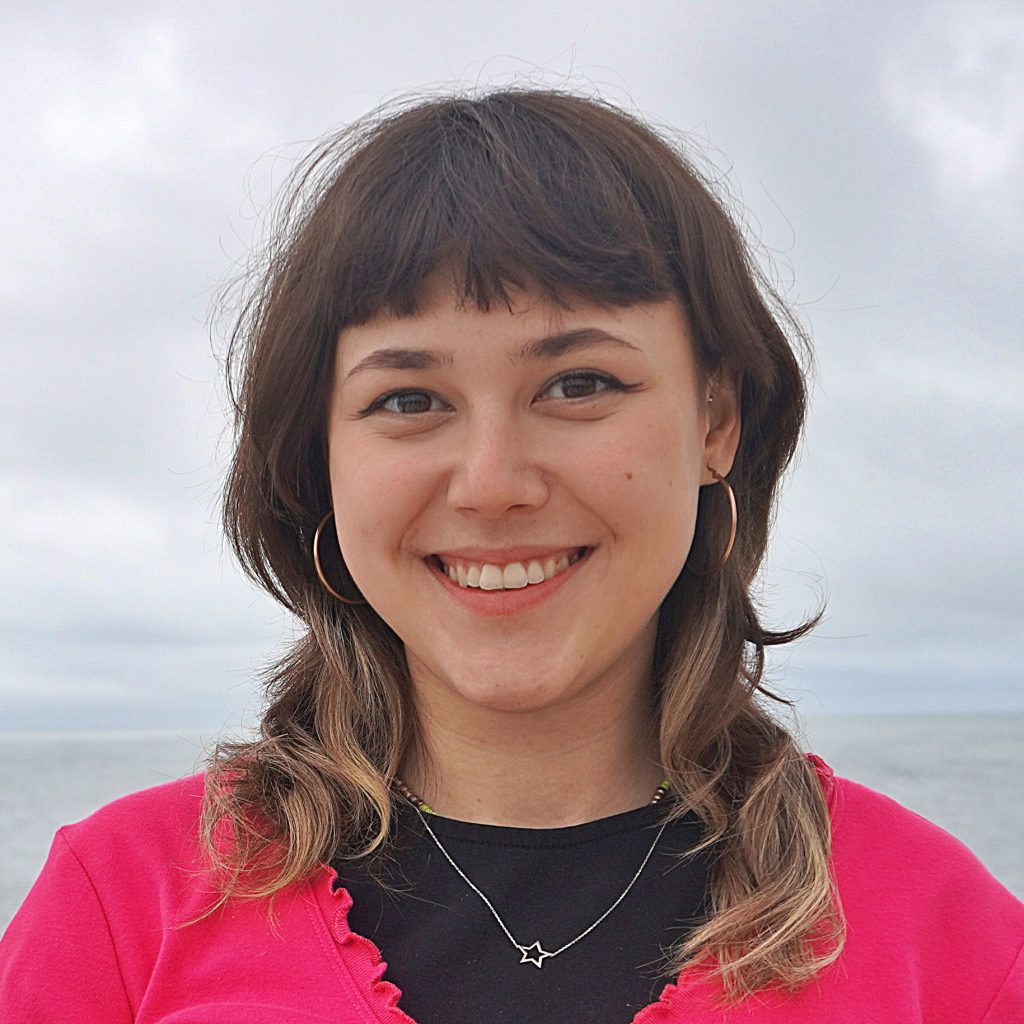

Born in Belgrade, Serbia. In 2022, she obtained her bachelor’s degree in Molecular Biology and Physiology from the Faculty of Biology in Belgrade. Presently, she is pursuing her master’s degree in Biodiversity, Genetics and Evolution at the Faculty of Science in Porto. Her research focuses on identifying the microbial composition of precipitation and glacier snow in the Northern Antarctic peninsula. This research is integrated in the MAPS project, focusing on the impact of extra-tropical cyclones and atmospheric rivers in the atmospheric and oceanic boundary layers in Antarctica.


Mariana Valquaresma graduated in Medicinal Biotechnology from Escola Superior de Saúde (Instituto Politécnico do Porto) in 2022. Currently, she is in the second year of her masters degree in Bioinformatics and Computational Biology at Faculty of Sciences of the University of Porto. She will work on her thesis at CIIMAR in the Microbiome Ecology and Biogeochemistry group, with the aim to investigate the diversity of deep-sea microorganisms and how it could be affected by deep-sea mining.
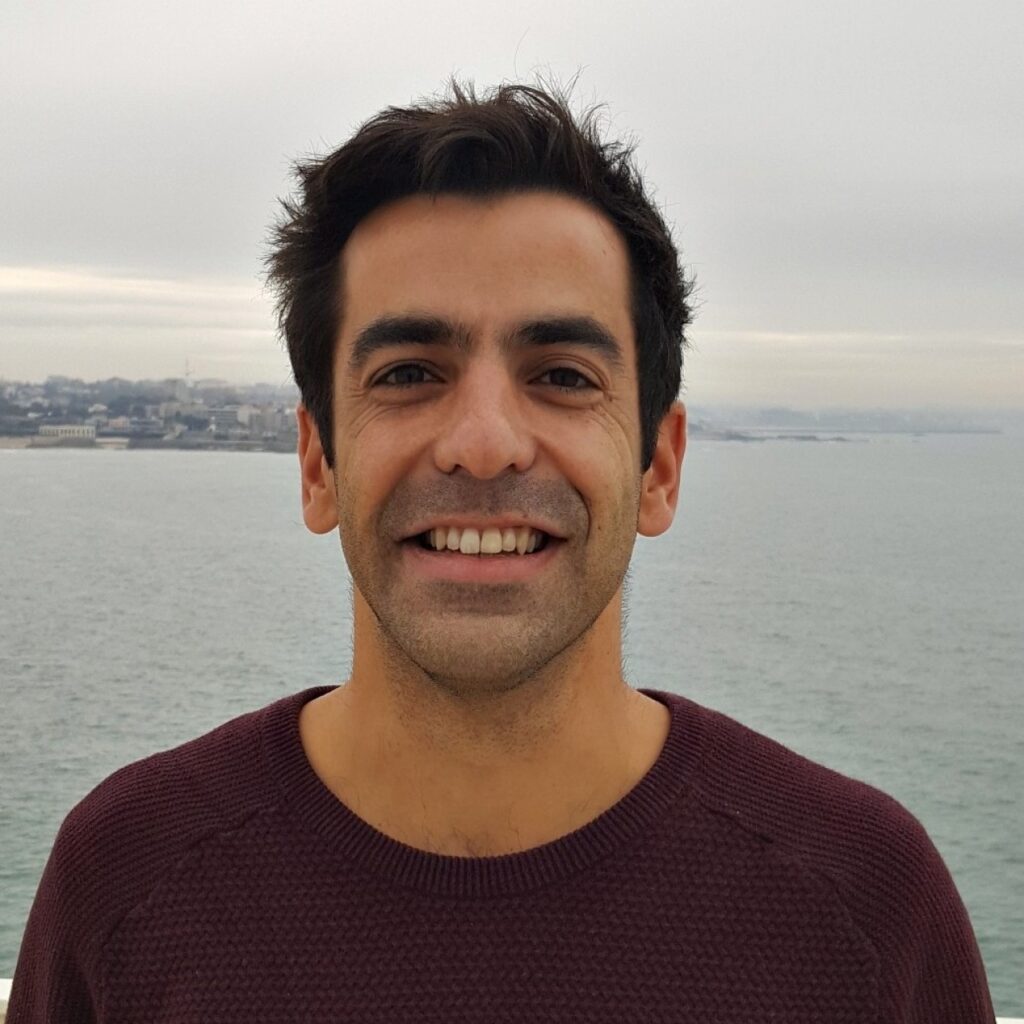

Miguel Semedo received his PhD in Marine Sciences from the Virginia Institute of Marine Science, College of William and Mary (2019), and he is currently a junior researcher at CIIMAR. As a microbial ecologist, Miguel is interested in investigating the diversity and function of microbial communities across multiple environments and their roles in biogeochemical processes. He is especially interested in understanding the impacts of human activities and pollution on these microbial processes. For his research, he applies molecular, bioinformatic, and biogeochemical methodologies to connect the dots between microbial community composition and biological activity.
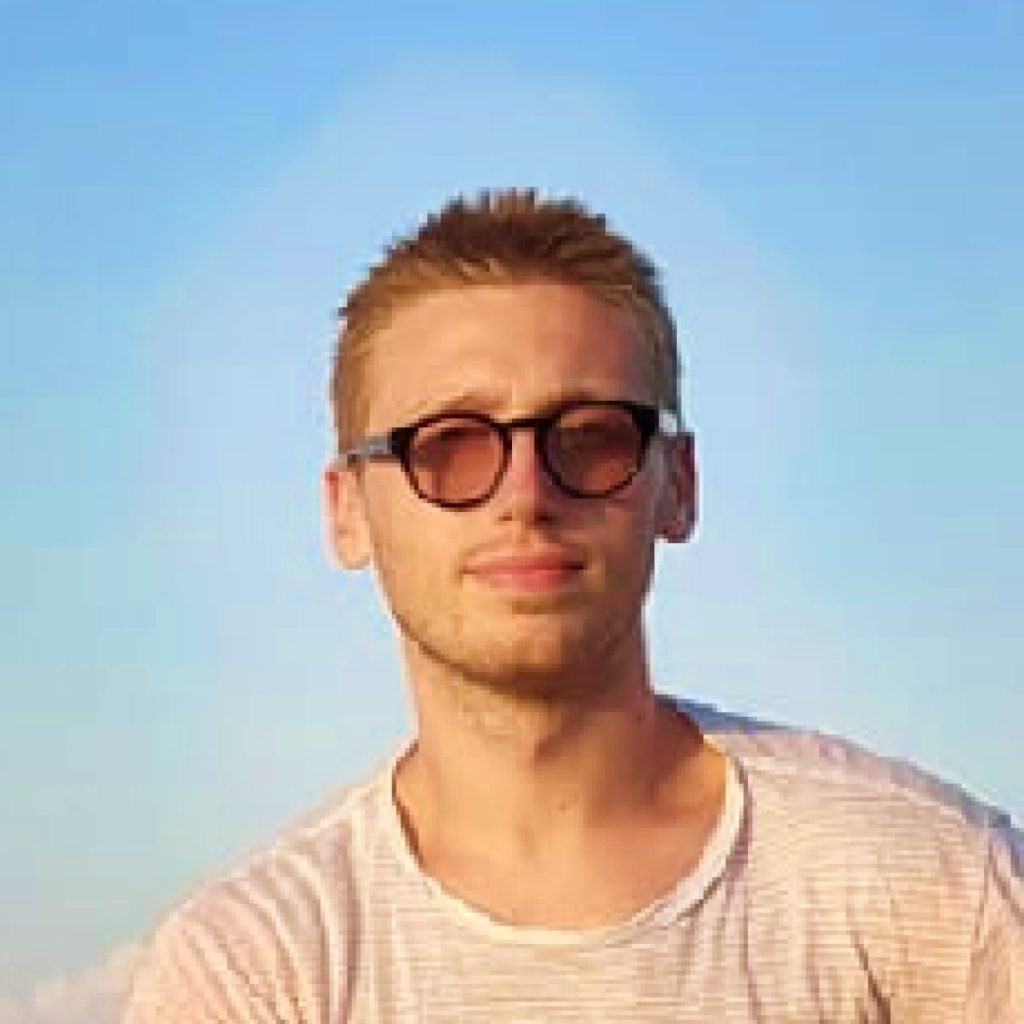

Nicola Gambardella was born in 1999 in Mirano, Italy, and graduated from the University of Padua in 2021 with a dissertation on metagenomics of extreme environments.
He is now doing his master’s degree in Molecular Biology with a specialization on Bioinformatics at the University of Padua, as well as his master’s internship with the CIIMAR Microbiome Ecology and Biogeochemistry Team.
During his project, he was able to work with metagenomics and metabarcoding data to reveal the limitations of current bioinformatic methodologies in microbial ecology.
He intends to pursue his studies in this topic with a PhD fellowship.
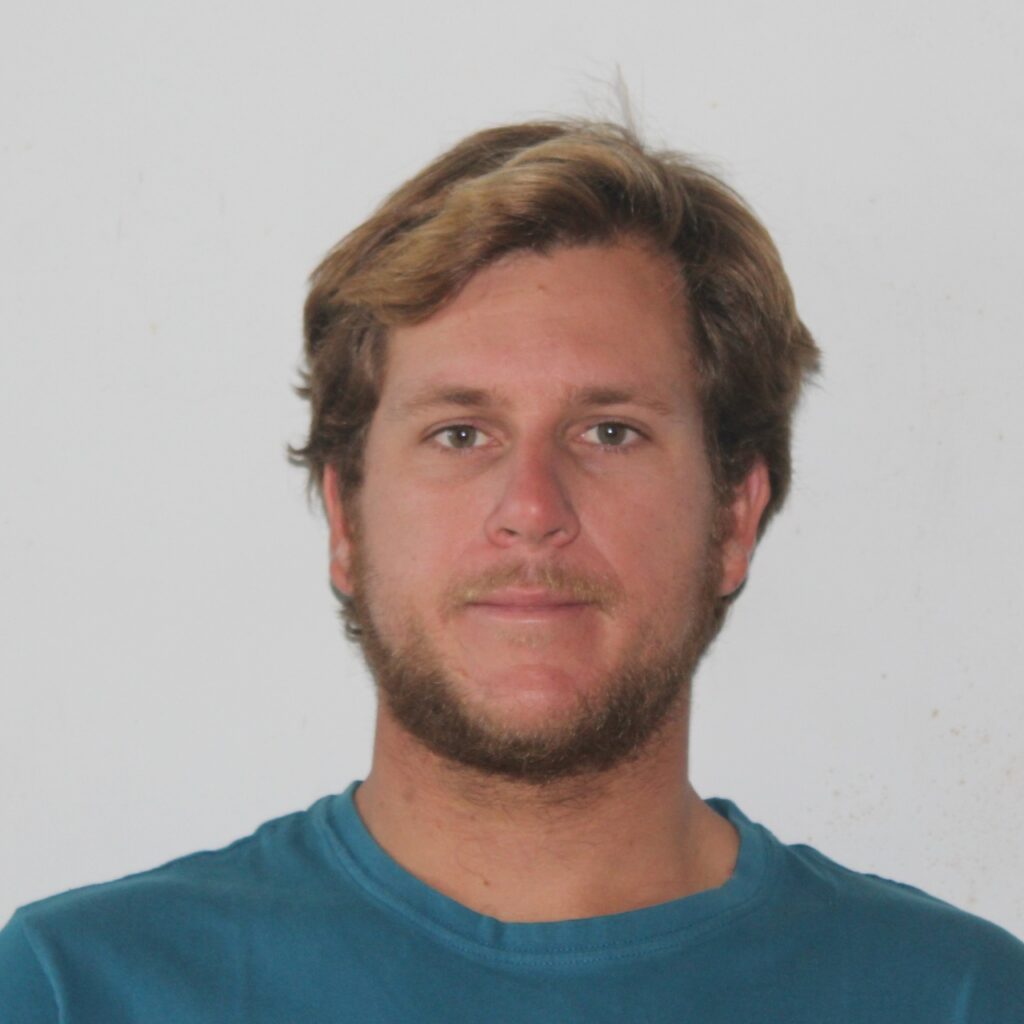

Óscar Babé Gómez obtained his degree in Marine Science from the University of Vigo in 2016. He is currently holding a research grant at CIIMAR and he is part of the Benthic Ecology Team. His main research interests focus on marine ecology and climate change. He is also a diver.


Full degree in natural sciences: qualification in biology by the State University of Pará (UEPA). Bioinformatician in development (R, Shell Script). Currently finishing a dissertation in Environmental Sciences. Masters in Biodiversity, Genetics, and Evolution, at Faculty of Sciences of the University of Porto. The master thesis goal is to unravel the diversity of the microbial communities distributed along with a system of marine-terminating glaciers within a Svalbard fjord (Kongsfjorden) to understand the dynamics under the threat of the Anthropocene.
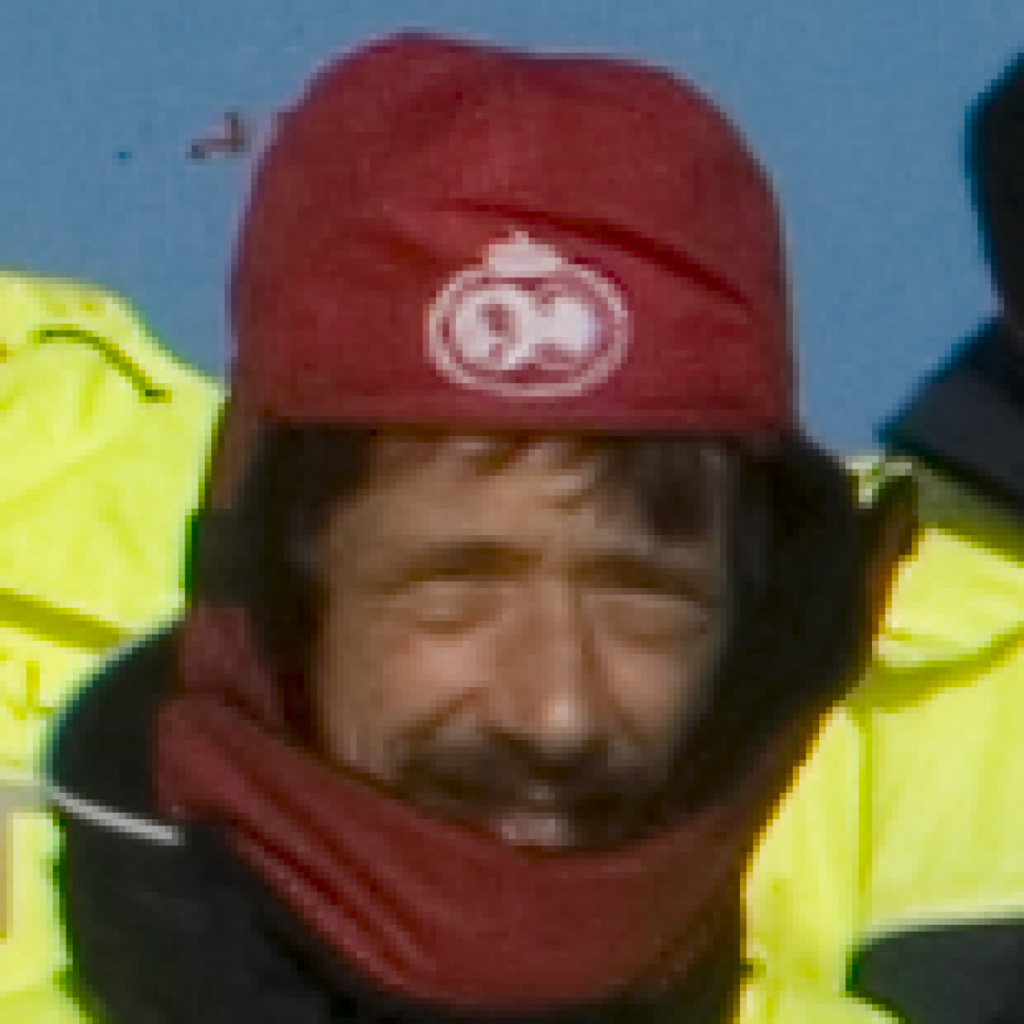

Pedro Duarte conducted his PhD research at the New University of Lisbon and worked as Assistant and Associate Professor at University Fernando Pessoa, Portugal, between 2005 and 2013. He got is “Agregação” in 2012. Since 2013, he has worked as a Senior Research Scientist at the Norwegian Polar Institute. His current research is focused on Arctic Ocean ecosystem change resulting from global warming, with an emphasis on primary production changes and implementation and usage of coupled ocean and sea-ice physical-biogeochemical models. Since 2018, he has been responsible for the Modelling work package of the Kongsfjorden Ecosystem Flagship Research Program on Svalbard3. His curriculum vitae contains ~100 peer-reviewed publications.
Pascoal, F., Costa, R., Assmy, P., Pedro, D., Magalhães, C.
2021Microbial Ecology, 34405249Rego, A., Fernandez-Guerra, A., Pedro, D., Assmy, P., Leão, P.N., Magalhães, C.
2021Microbial Genomics 7(12Perdigão, R., Almeida, C.M.R., Magalhães, C.,Ramos, S., Carolas, A. L.
2021 Microorganisms, 9 (11), 2285Pascoal, F., Costa, R., Magalhães, C.
2021EMS Microbiology Ecology, 97 (1) fiaa227Semedo, M., Lopes, E., Baptista, M.S., Oller-Ruiz, A., Gilabert, J., Tomasino, M.P., Magalhães, C.
2021Frontiers in microbiology 12, 319Website by: Glitz Design